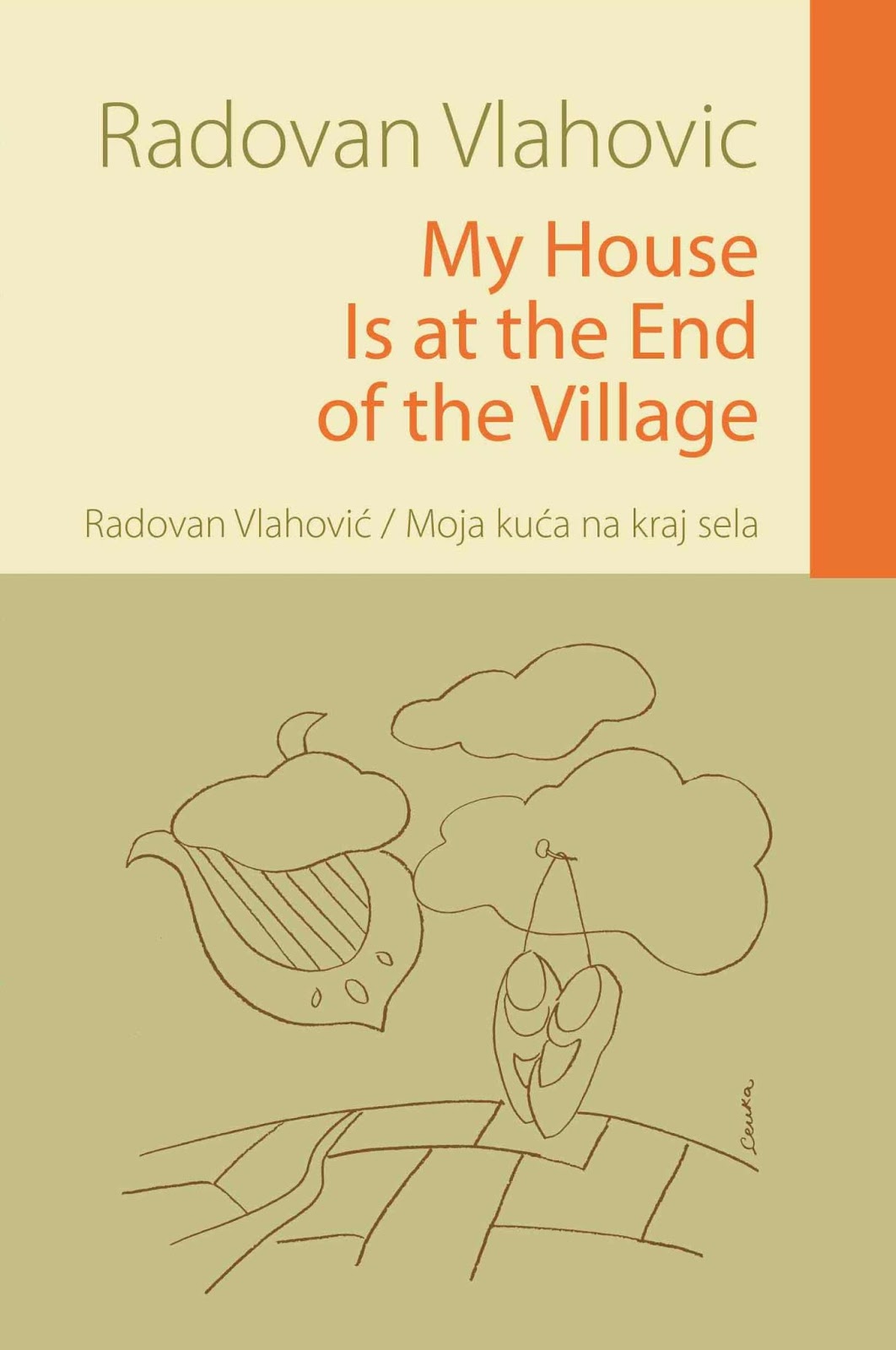 |
Slovački izdavački centar,
Bački Petrovac, 2012.
|
My House Is at the End of the Village, oh My Lord
My house is at the end of the village
my soul is in this house
at the end of the village
oh my Lord
And my wife
my children
my words
tiny words
everyday, ordinary words
are in my room
oh my Lord
In this house with a big yard
with a lot of bricks
with a lot of grass
with a lot of fruit
and in the room, beside the icon,
there is one spade bought at the fair
Its handle is made of ash wood
its blade is made of steel
and sometimes in this house
in this yard
at night, under the stars
I take my spade and bury myself
six times a minute
I can’t do anything about it
oh my Lord
I Am holding My Spade in My Big Hand
I am a sometimes afraid
oh my Lord
Afraid of loneliness, of deafness
of blindness
And I bravely decide
to stick with beauty, goodness
purity
and the other things
But they torture me and make me
dance and trot
and obey their orders
And you smile
from the skies above
and you test me
in many ways
I was a red horse
I was a green horse
I was a small blue horse that pranced
when a yellow furious Pannonian insect
flew up to him, bit his neck and sucked his blood
Oh my Lord
And I stop
I hesitate
I don’t know where to go
I don’t know what to do
I hold my spade in my big hand
and blue birds bloom
in my blue head,
Blue quails
And fears chase the birds
They want to cut their wings
Because of loneliness
Because of deafness
and blindness
oh my Lord
Thank You, My Lord
Sometimes I wonder
Whether I am strong enough
Whether I am tough enough
To convert my dreams into reality
Sometimes I sleep
On five beds
I travel on the wings
Of seven swallows,
Following the diagonal of a circle
Sometimes I smoke under water
And I dream of dogs
Which purr
I dream of birds
And winged fish
I sleepwalk
In the trees
Made of clouds
Sometimes I kiss
With my nape
The ground
The Planet Earth
Sometimes I believe
In that terrible truth
That I can work
Deep down in my well,
Joyfully and calmly
Because my dream is my reality
Thank you, my Lord
Loyalty and persistence
Ideas and love
Intimacy
United thoughts and vibrations
I am alive
I am in harmony with this celestial moment
With the bliss of soul’s serenity
I am breathing gentle air
I am full of infinite energy
I am listening to music
Quiet music
Music
My dreams are reality
Thank you, my Lord
It’s Saturday
It’s summer evening
I am alone and I am can
Withdraw into
Deepest depths
Of my inner being
And this vacuum entails
The cloud, the sky, this night
The Northern Star
Lighting and winds
Fire and smoke
Cleansed of fear
I resigned myself to my fate
Timelessly silent
Bodiless spirit
Free
Free to say
Thank you, my Lord
My dream is reality
Radovan Vlahovic’s poetic method in his collection of poems that make one unity, or a long poem, “My House Is at the End of the Village”, summarizes the experiences of famous poetic discoveries and it adds some novelties that are inherent forms of poetic writing for this type of poetry. What exactly does it mean? A poetic zest that brings together and reflects these poems (a long poem) as artistic creations is offered by the poet in the shape of his specificity that is based on the traces and remains of epic, humorous, absurd, satirical, and ironic forms; and in various types of imitations, or simulacrums, in order to present everything, finally, as a very simple and understandable “story”, which is the moral of these poems (a long poem). The other level, the one which could be described as the poems’ foundation based on motifs and contents is an interwoven webbing made of shadows of various folk, natural, patriarchal, family, rural, political, religious, traditional and intimate themes and scenes. Besides a unique opinion of different worlds and their entanglements and confrontations, rhythm is the vital connective tissue that holds the poems (a long poem) together as one unit. The rhythm’s variety, its imitation or simulation of some familiar forms from different poetic types, religions and other spiritual disciplines which is combined with Banat’s specific feeling and severe melancholia (almost hopelessness), makes this poetic creation stand apart in our contemporary poetic scene.
An Extract from Book Review
Simon Grabovac